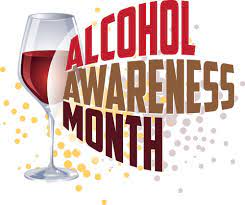
April marks National Alcohol Awareness Month and is sponsored by the National Council on Alcoholism and Drug Dependence (NCADD) to educate the masses about America’s #1 health problem: alcohol dependence. Claiming the lives of more than 90,000 people every year, this month focuses on raising awareness about alcohol abuse and dependency before it is fatal.
HOW TO OBSERVE NATIONAL ALCOHOL AWARENESS MONTH
1. Participate in the Alcohol-Free-Weekend
As part of National Alcohol Awareness Month, NCADD encourages the public to spend 72 hours without alcohol. Make sure you and your family participate in this activity and monitor symptoms of discomfort or cravings within the three days.
2. Start conversations
It is your role as a responsible adult to initiate the conversations that nobody is willing to talk about. Speak with your friends and families who you’ve noticed are reliant on heavy drinking. As a parent, teach your children about alcohol misuse and help them build coping skills. Tell them that stress, anger, loneliness, and peer pressure are a part of life and should not cause them to give in to liquor for relaxation.
3. Throw ‘clean’ parties
WHY NATIONAL ALCOHOL AWARENESS MONTH IS IMPORTANT
-
Denial in alcoholism is a real disease
Anybody suffering from substance abuse or struggling with alcoholism would deny it. They underestimate their ability to control the craving or to quit, the amount of alcohol they drink, and the impact it has had on their life. Denial is a common trait or symptom of alcoholism that has to be counseled.
-
There’s a stigma surrounding alcoholism
What comes to your mind when you think about alcoholism? A drunk man living in rags on the streets, drinking hard liquor on the job, and appearing at the bar every night? The movies’ depiction of alcoholism is only a quarter of the truth, and this is why millions of people have trouble recognizing the problem or seeking help.
-
Alcoholism claims thousands of lives annually
Alcoholism is the third-leading preventable cause of death in the United States, claiming the lives of more than 90,000 people every year.


